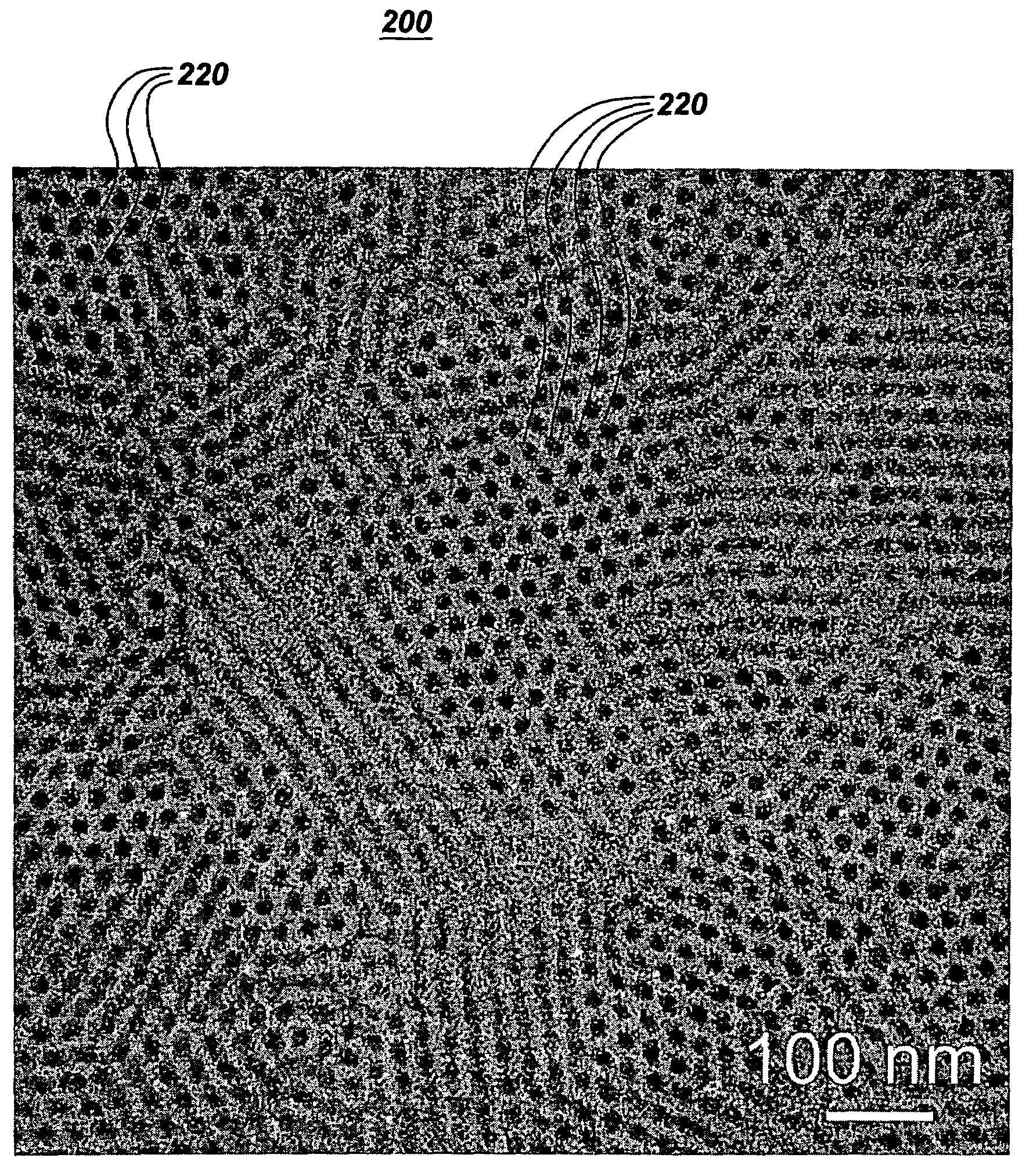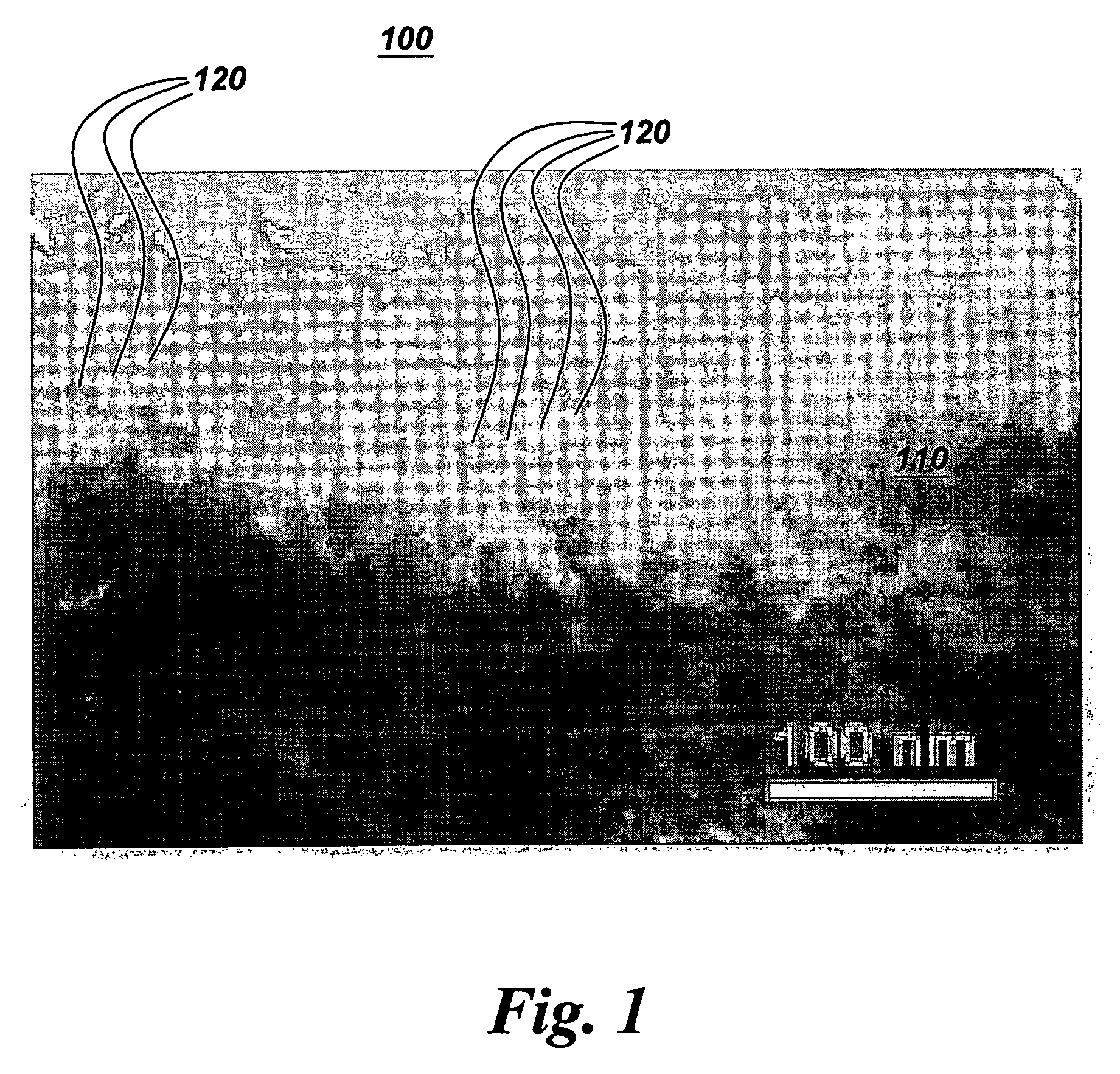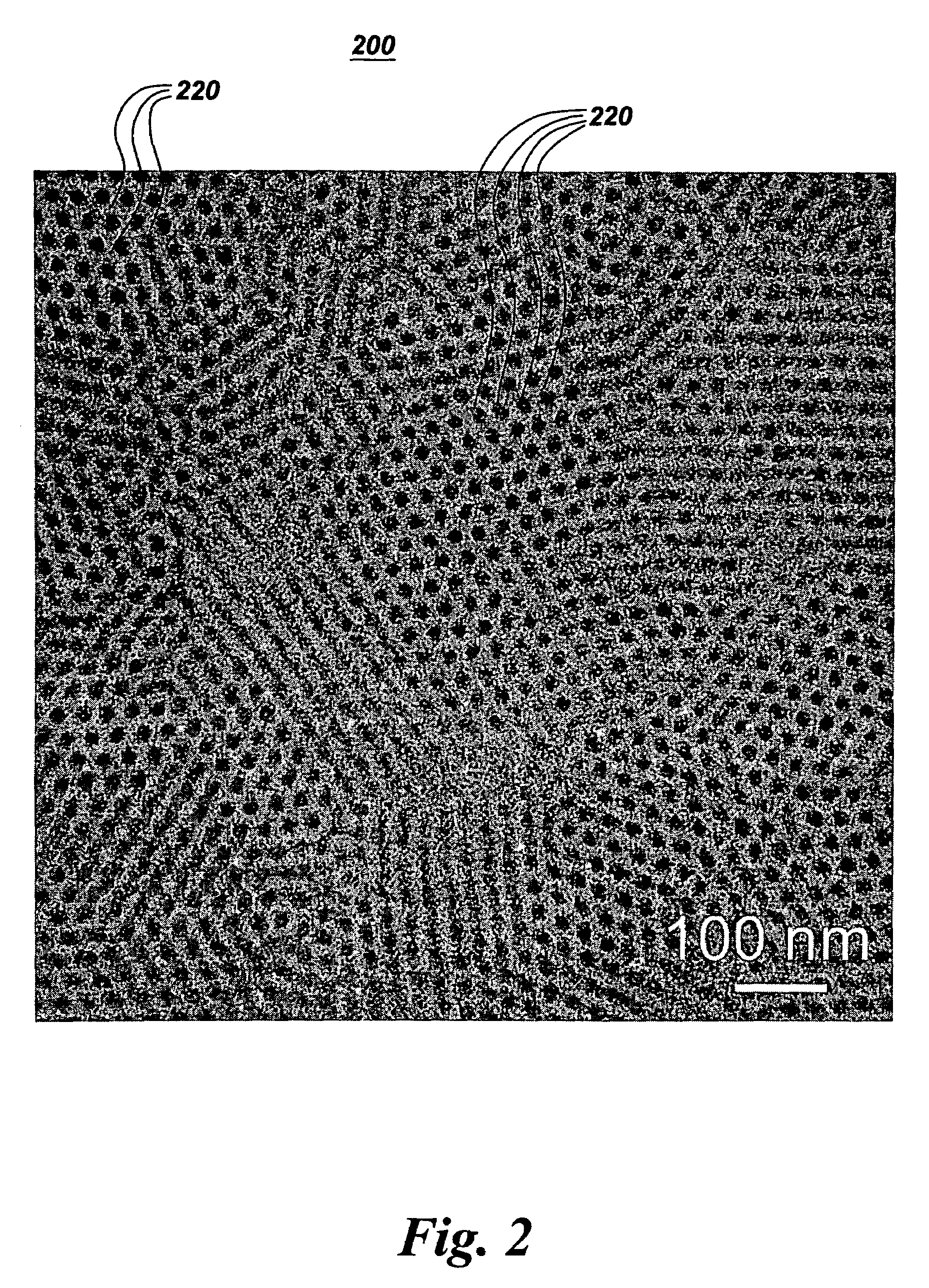Nanoscale ordered composites of covalent ceramics for high-temperature structural applications via block-copolymer-assisted assembly and method of making
a covalent ceramic and composite material technology, applied in the field of ceramic materials, can solve the problems that current synthetic techniques such as self-assembly approach have not yielded hierarchically-ordered non-oxide ceramic materials for high-temperature structural applications
- Summary
- Abstract
- Description
- Claims
- Application Information
AI Technical Summary
Benefits of technology
Problems solved by technology
Method used
Image
Examples
Embodiment Construction
[0017]In the following description, like reference characters designate like or corresponding parts throughout the several views shown in the figures. It is also understood that terms such as “top,”“bottom,”“outward,”“inward,” and the like are words of convenience and are not to be construed as limiting terms.
[0018]Referring to the drawings in general and to FIG. 1 in particular, it will be understood that the illustrations are for the purpose of describing a preferred embodiment of the invention and are not intended to limit the invention thereto.
[0019]A ceramic material of the present invention is shown in FIG. 1. FIG. 1 is a transmission electron microscopy (TEM) image of a C / Si—C—N(—O) nanocomposite of the present invention. The ceramic material 100 comprises at least one ceramic phase 110. The at least one ceramic phase 110 has an ordered structure 120 on a nanoscale. Ordered structure 120 is thermally stable up to a temperature of at least about 800° C. The ceramic material 10...
PUM
| Property | Measurement | Unit |
|---|---|---|
| temperature | aaaaa | aaaaa |
| temperature | aaaaa | aaaaa |
| temperature | aaaaa | aaaaa |
Abstract
Description
Claims
Application Information
 Login to View More
Login to View More - R&D
- Intellectual Property
- Life Sciences
- Materials
- Tech Scout
- Unparalleled Data Quality
- Higher Quality Content
- 60% Fewer Hallucinations
Browse by: Latest US Patents, China's latest patents, Technical Efficacy Thesaurus, Application Domain, Technology Topic, Popular Technical Reports.
© 2025 PatSnap. All rights reserved.Legal|Privacy policy|Modern Slavery Act Transparency Statement|Sitemap|About US| Contact US: help@patsnap.com



